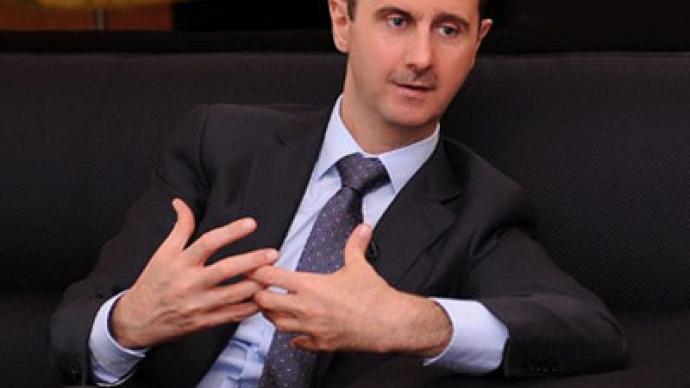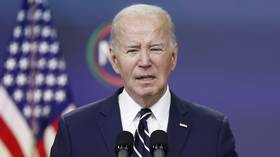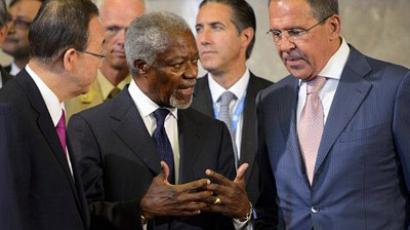No plans for Assad asylum in Russia – Kremlin source

Western countries are pushing Russia to grant Syrian President Bashar al-Assad political asylum, sources suggest. Russia, however, says it has no plans of accommodating Assad, for the time being.
The United States is particularly adamant that Russia give the Syrian leader political asylum, a diplomatic source told Russian daily Kommersant. Russia, however, does not plan to do so, and is not considering the option of lodging Assad, the source said. The report dispels rumors that Moscow decided to grant asylum to Assad, and that the Syrian leader had already started to relocate his savings to Russia. This is not the first time that Russia said it was not going to shelter Assad. In March, then-Prime Minister Vladimir Putin rejected a proposal by Tunisian President Moncef Marzouki to grant Assad asylum, saying that the issue had not been discussed. Russia has repeatedly insisted that it is not supporting Assad. In fact, a source in the Kremlin said Moscow believes Assad’s chances of staying in power are slim. What Russia does want to see is the Syrian people deciding their own fate, and a peaceful outcome in the ongoing crisis. It opposes military intervention and favors a solution similar to the one in Yemen, where President Ali Abdullah Saleh was allowed to leave office and transfer authority to an interim government in exchange for clemency for himself and his family. The stance that the future of Syria is to be decided by the Syrian people was reflected in the recent Geneva agreement. Many Western powers have continued to interpret it as stipulating the necessity for Assad to leave office, despite the fact that the accord doesn’t mention the Syrian president’s name. The agreement also calls for the creation of a coalition government between the regime and the opposition. This, however, is proving to be a difficult task to implement, as the opposition largely spurned the Geneva declaration and said it would not cooperate with the Syrian government. The Syrian opposition is still fraught with discord and a lack of unity, despite multiple meetings aimed at ironing out differences and coming up with a joint platform. The latest gathering in Cairo was boycotted by the Free Syrian Army, which lashed out at organizers for taking the issue of foreign intervention off the agenda. In the meantime, Assad said he was ready to leave office if that meant that his people and country would be saved. “If saving my people and my country depends on my staying or leaving, then why should I hang on?” he told Turkish newspaper Cumhuriyet. “I would not stay even a day longer. But if the opposite were true; if the people do not want me then they have elections. If the people so choose they can send me packing.”














